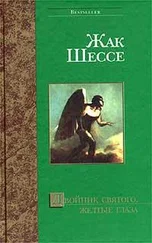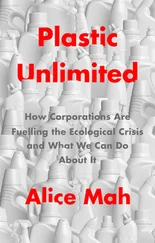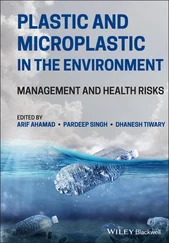The sun fires the tips of the boy’s hair into a spiky penumbra, a hazy crown of thorns. He gazes up at Nina with something approximating concern in his eyes and reaches out.
A little hand in hers. It would be so easy.
Of course, there are those who say, “The mountain is angry.” The disappearances of the North Shore houses now number in the high hundreds, and as downtown hotels fill up with the moneyed homeless, letters to the local papers speak of Gaia’s revenge or God’s displeasure. To voice these kinds of beliefs in the wake of the Asian tsunami or Hurricane Katrina would have invited instant censure. But here the victims are people of means, not the already downtrodden, so the notion that they’re being either cosmically punished or held up as “a warning to us all?” ( Vancouver Sun editorial, October 16, 2006) is debated in the mainstream media by pundits with straight faces.
And that slurry of twittering that can be heard around every corner? That’d be the sound of schadenfreude .
Unlike those who act as if they’re on speed-dial to the Earth goddess-those men on recumbent bikes and those women who rub baking soda into their fuzzy armpits and think fetal-monitoring machines are the work of the devil-rationalists who’ve always harboured a secret penchant for Greek mythology know full well that Gaia is in fact the daughter of Chaos.
Still, there is talk of healing. The chief of the Squamish Nation is invited to say a few words over the deep hole where a house had stood, a place that was once tribal land. The event evolves into something rather ecumenical, with smudge sticks, button blankets, trickster stories, and didgeridoos. As a dog howls forlornly, the elder quotes from Chief Seattle’s famous 1854 speech. “It is the order of nature, and regret is useless. Your time of decay may be distant, but it will come, for even the White Man… We may be brothers after all. We will see.”
And the mountain in answer? Not so much as a burp.
“I didn’t know marmots could drive!” The boy twists and turns in the passenger seat of Nina’s car, punctuating each breathless pronouncement with body language. He has proved to have an insatiable appetite for all things marmot and an endless arsenal of exclamation marks. It’s as if he’s cornered the market on enthusiasm and is doling it out without regard for the niceties of supply and demand.
Nina envisions the look on Patricia’s face as she turns from applauding Byron-from-England’s Houdini-like escape from a straitjacket and padlocked chain to find her Cracker Jack prize of a son gone, and feels a rare frisson of self-satisfaction.
She is finding it hard to keep her paws on the steering wheel, and shoulder-checking is impossible with the mascot head still on. She doesn’t usually drive if she can help it and her mid-’70s Toyota Corolla is practically in its death throes, but this morning she was running late after a savage bout of insomnia, and trying to make her shift by bus was not an option. The walk back to her car, parked on a side street just outside Granville Island, felt impossibly long, with the boy chittering away at her side as he trotted to match her pace. But there were remarkably few people about and she’s fairly certain no one saw them get in the car and pull away.
It seems he’s only in kindergarten-what kind of people would put a five-year-old in a uniform, complete with blazer?- and that his teacher, whose name sounds something like Miss Peach (the boy talks so fast Nina can’t make out everything he’s saying), has made the Vancouver Island marmot the official class animal. “There’s only about a hundred of you left in existence!”
Nina nods. She tells him she’s come to the city as an ambassador for her fellow marmots, to make people understand that they have to stop hacking away at the old-growth forests and destroying their habitat.
“And they sent you because you’re the biggest!!”
“And because I’m the only one who could drive a standard,” Nina says as the car shudders onto her street just off Commercial Drive. Breathing in her own expelled carbon dioxide in the confines of the car is making her giddy, as if her brain cells are multiplying too rapidly, spawning an overpopulated subsidized-housing project in her skull cavity.
In front of the just-completed reno on the corner, a hired gun in a surgical mask is blowing leaves from the lawn and the sidewalk with a backpack blower. They gust madly, whirling like the calendar pages in Citizen Kane before settling into the gutter. Nina can remember when there was a clear divide in the city, a line in the sand all parties respected. West of Main was where you found the leaf blowers, east of Main people still retained a genetic memory of how to wield a rake and a broom. But when property prices started spiking wildly there began a drift of Westside sensibilities into her formerly bohemian and Italian neighbourhood, along with their implements of destruction.
“Satan’s little helper,” she says.
“What?” says the boy.
“The two-stroke terrorist.” She points towards the leaf blower.
The boy’s eyes go wide. “My dad has one of those.”
She doesn’t answer, letting him draw his own conclusions. The boy sucks in his lips until his mouth disappears. Nina can feel the sweat pooling in her ears as the car grinds to a stop in front of her place.
It’s the leaf blowers that undo her every time. They’re the reason she’s trapped in this sauna-hell of a mascot costume in the first place. That day in late August, as Nina hurried along Napier to her shift at the food co-op, there was a woman out in front of the new heritage-style infill that towered over its neighbours; she was blasting a blower back and forth across her lawn as if she were divining for water. With her tidy silver-grey pageboy and batiked sarong wrapped around her sturdy, late-middle-aged body, she exuded an obnoxious serenity. The grass, smooth as a green sheet yanked tight over the yard and tucked in with hospital corners, appeared spotless save for a few stray leaves from a Japanese maple. Nina stopped, ignoring the warning in her head that was whooping like a car alarm, and stood on the sidewalk with her hands on her hips.
“I thought you might like to know,” she said loudly over the ear-splitting roar of the blower, “a leaf blower causes as much air pollution as seventeen cars!” The woman didn’t even glance her way. Nina strode onto the lawn, yelling, “I said, I thought you might like to know that a leaf blower causes as much air pollution as seventeen cars! ”
The woman trained the nozzle on the one remaining red leaf, which quivered slightly but stayed where it was. Nina wrenched the leaf blower out of the woman’s hands and aimed it at her face. The pageboy lifted off the startled woman’s scalp before she could grab it. The wig hovered overhead for a few seconds like an antediluvian bird before blowing off and snagging on a bare branch of the maple. The woman stood there, impossibly wide-eyed and bald, an anime character, as Nina screamed about carcinogens and decibel levels and the end of civilization while wielding the leaf blower like an AK-47. Later, Nina would recall that this was the moment she understood how something like Columbine could happen.
The woman pulled pale pink wax plugs from her ears and, backing away slowly, said, “I’m going to call 911.” Or maybe just mouthed the words before Nina lunged.
Honey sings to maintain her equilibrium, “Thome of them want to use you, thome of them want to get used by you…,” her long, black hair blowing across her face in the breeze from across the water. Driving over the Lions Gate Bridge always tightens her guts, but not as badly as crossing the Second Narrows does. That one, she’s determined, is just plain bad luck. The Ironworkers Memorial Second Narrows Crossing, as it’s officially designated, a name no one uses, was consecrated in blood. Whenever Honey traverses it she makes the sign of the cross in deference to the dead. The last time she took that route to the North Shore, she lifted her hands off the steering wheel at the halfway point and veered into the next lane, almost clipping a motorcyclist with a helmetless passenger.
Читать дальше












